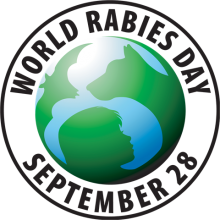Capacity building
GARC provides tools and training to build in-country skills and knowledge on essential elements of rabies control programs, enabling countries to strengthen their efforts to eliminate rabies in a systematic way.
-
Advocacy toolsWorld Rabies Day
World Rabies Day is a global day of awareness. Governments, organisations and individuals hold events on this day that highlight their work and educate their communities. GARC provides an event platform and resources to increase their impact and share their work with other rabies stakeholders across the world.
Case studiesYou can read all about some of the case studies that highlight the implementation of our various tools and resources and use these to advocate for support and engagement.
Health economicsGovernments, donors and health care providers require information about the financial costs and benefits of rabies elimination programmes to make informed decisions about resourcing these initiatives.
GARC has been working on various projects to provide this type of information, from the reassessment of the burden of rabies, to economic evaluations of rabies programmes and examining the cost effectiveness of various rabies control strategies.
-
Planning tools
Click here to view all of the Planning Tools that GARC has created to help you with your rabies elimination efforts.
-
Surveillance tools
Click here to view all of the Surveillance Tools that GARC has created to help you with your rabies elimination efforts.
-
Education tools
Click here to view all of the Education Tools that GARC has created to help you with your rabies elimination efforts.
